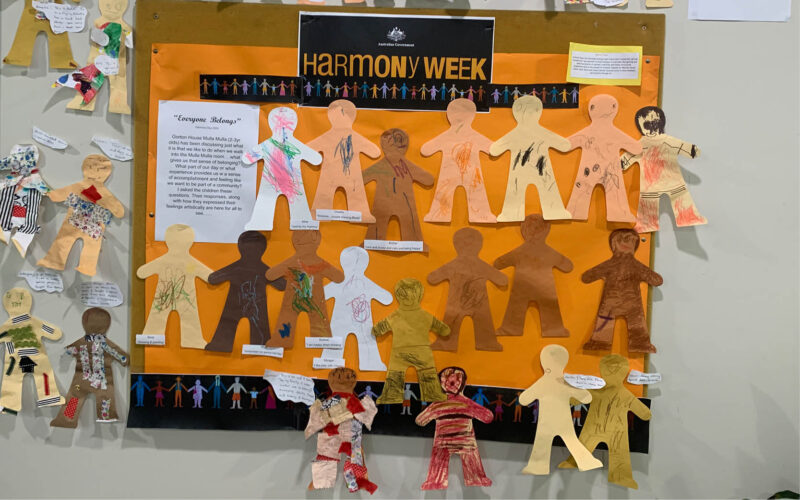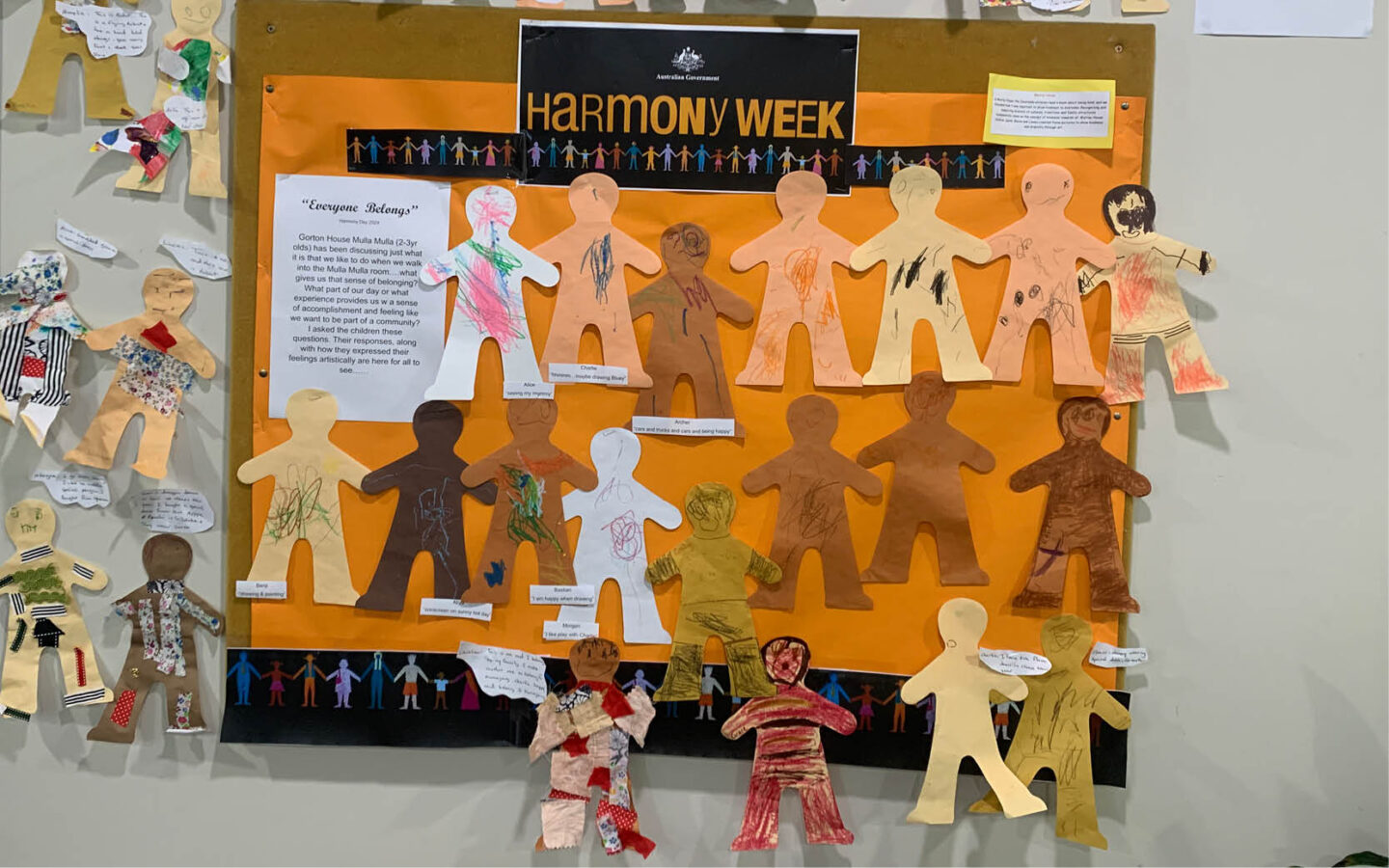

Inclusion for all children and families
Each year at least thirty per cent of the children and families enrolled in our onsite education and care services receive targeted support and early intervention. These children and families have additional support needs due to living in vulnerable circumstances, having complex challenges of having a disability.
Our Inclusion of Children with Additional Needs Policy describes how our integrated team of educators and allied health therapists ensure that children with additional needs have equal access to the learning and development opportunities available to all children, while also meeting their individual needs.
What is inclusion and why is it important?
At The Infants’ Home, ‘inclusion’ means that all children, regardless of their background, abilities or behaviours, are supported to participate meaningfully in day-to-day educational programs and routines. Our inclusive approach ensures that every child is an active and respected member of our community.
We prioritise inclusive practice because it:
- Supports what research tells us about child development and how to best promote children’s learning and wellbeing.
- Is in line with Early Childhood Australia’s (ECA) Code of Ethics and the United Nations (UN) Convention on the Rights of the Child which guide our everyday practice.
- Reflects best, ethical and professional practice in early childhood education and care.
What are the challenges of inclusion?
Children with additional needs may look, sound or behave differently to other children. Some children may have physical differences, while others may require adaptive equipment such as walkers, braces or wheelchairs.
Children with developmental disabilities, neuro-diverse conditions, learning difficulties, and those affected by trauma or vulnerabilities may behave in non-typical ways for their age. For example, they may cry or shout excessively, make unusual noises, behave aggressively toward others or be disruptive or destructive.
‘Typically developing’ children (or their families) can sometimes find these differences or behaviours confronting or frightening, especially when they are new to early childhood education and care. When this happens, our integrated team of educators and allied heath therapists work with the children and families involved to encourage their understanding of and respect for difference, while promoting every child’s safety and wellbeing.
Working with children and families
The integrated team builds relationships with individual children and families to learn about their specific interests, strengths and needs. Through respectful, honest communication and collaboration, the team adapts environments, routines and strategies to ensure the equitable inclusion of all children in the program.
The Infants’ Home’s play and interest-based educational programs are designed to help all children to understand and appreciate peoples’ differences and similarities, to develop their social and self-regulation skills and to gain the confidence to be active participants in their community.
When a child feels confused, frightened or overwhelmed by the behaviour or appearance of another child, integrated team members support them to build their resilience and sense of safety and security, while helping them to develop understanding and empathy for others. The integrated team works collaboratively with families and external professionals to ensure the inclusion of children who have additional needs in ways that promote the safety and wellbeing of all children. The team also uses targeted strategies to support all children in circumstances where a child’s behaviour or actions may be disruptive or aggressive toward other children. In line with our Vision and Values, and the Inclusion of Children with Additional Needs Policy, children are never suspended or excluded from our programs.
What can families do?
Families who are concerned about their child’s development or behaviour are encouraged to speak with a member of the integrated team. They will provide the family and child with professional support and guidance, and if needed can help them to access other services in the community.
Families who are worried that their child is being affected by another child’s behaviour or challenges are also encouraged to raise this with a member of the integrated team. The integrated team will work with the family and their child to manage their concerns while maintaining safety, equity and inclusion for all.
The Infants’ Home’s 'Inclusion of Children with Additional Needs Policy'
The Infants’ Home’s Inclusion of Children with Additional Needs Policy details the practices our staff undertake, and their responsibilities, to provide early childhood learning environments that reflect our commitment to the principles of social justice, inclusion and equal opportunities for all children and their families. The policy is regularly reviewed and updated as required. A copy of the Inclusion of Children with Additional Needs Policy is available from your Centre Director.
Contact Us
If you have any questions or would like more information, please email us at childrensservices@theinfantshome.org.au.